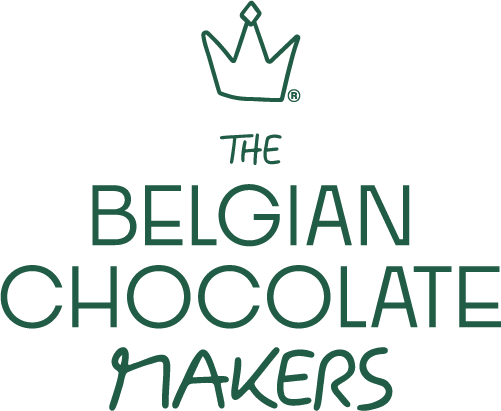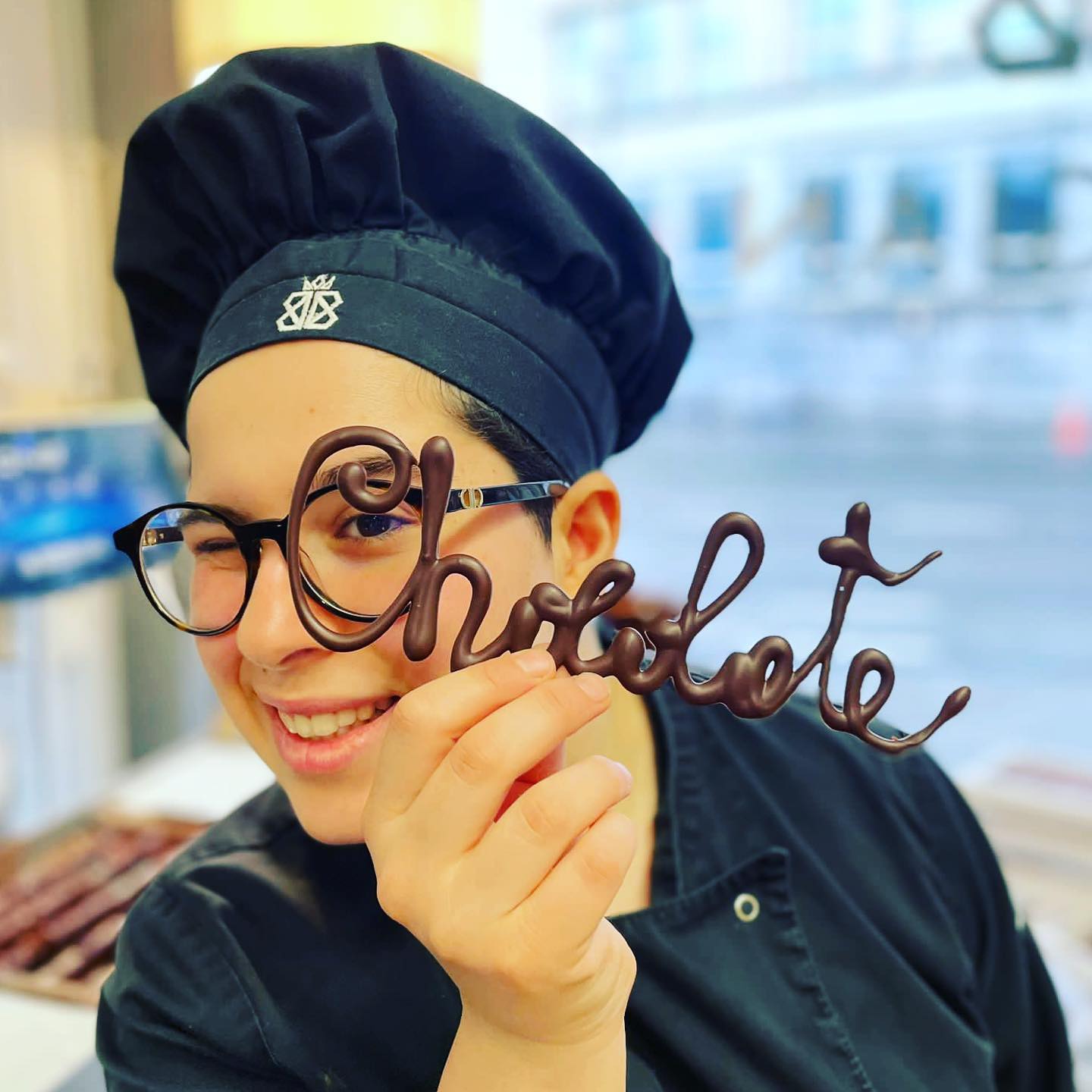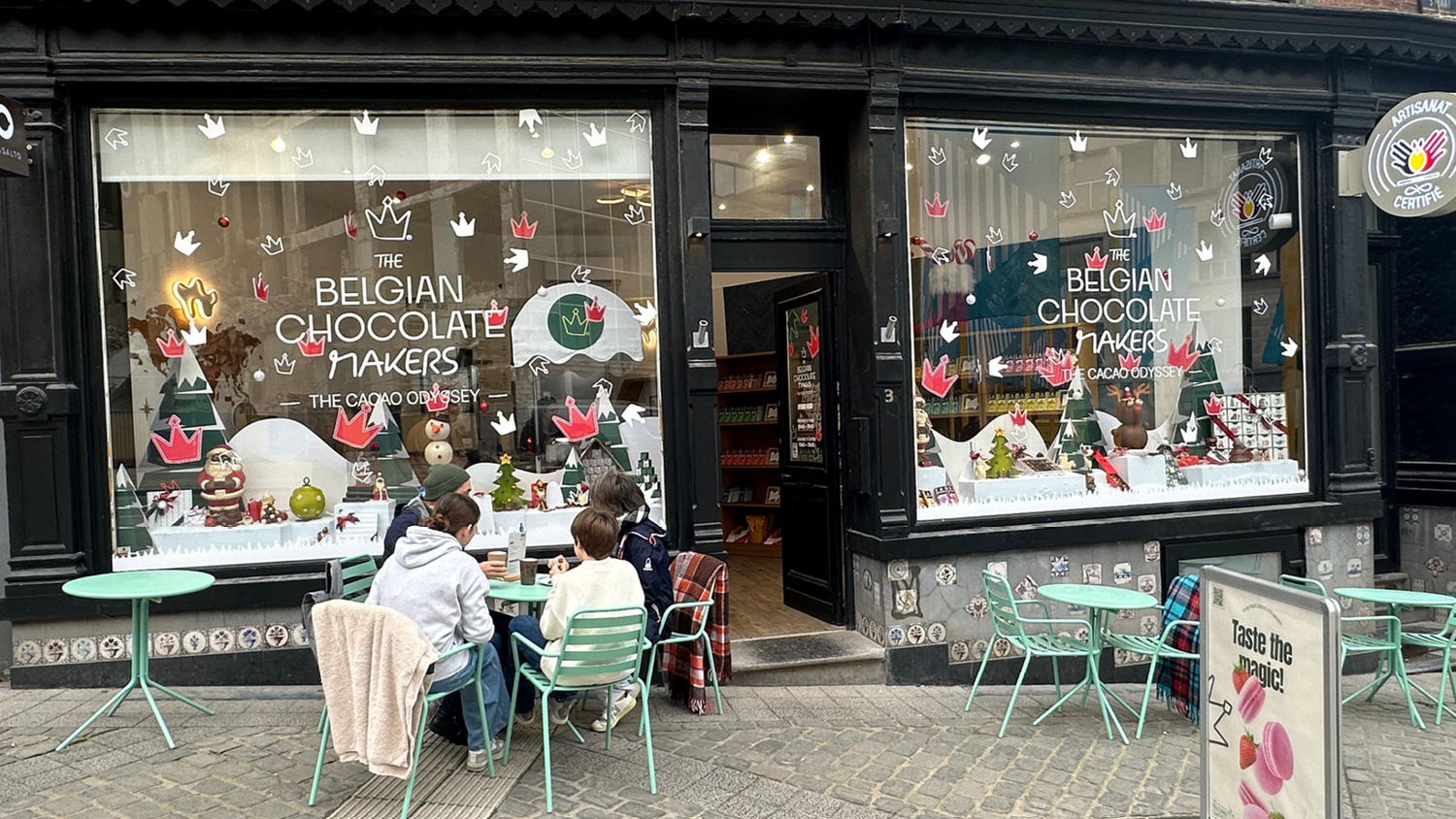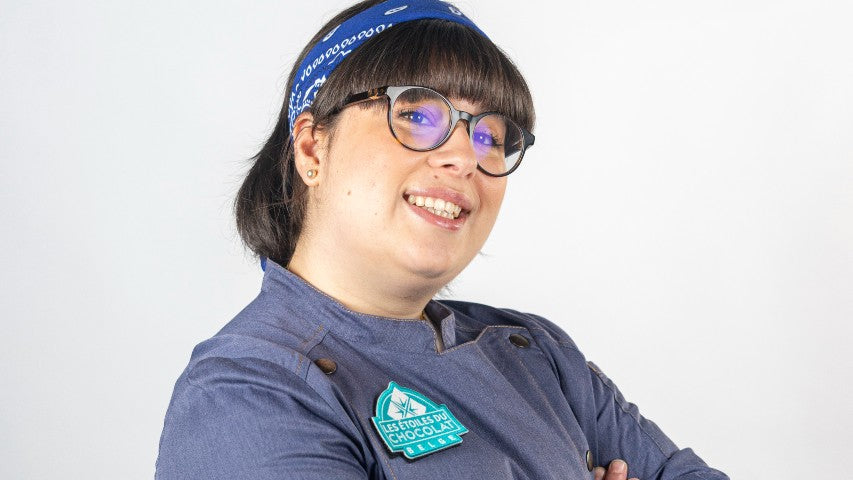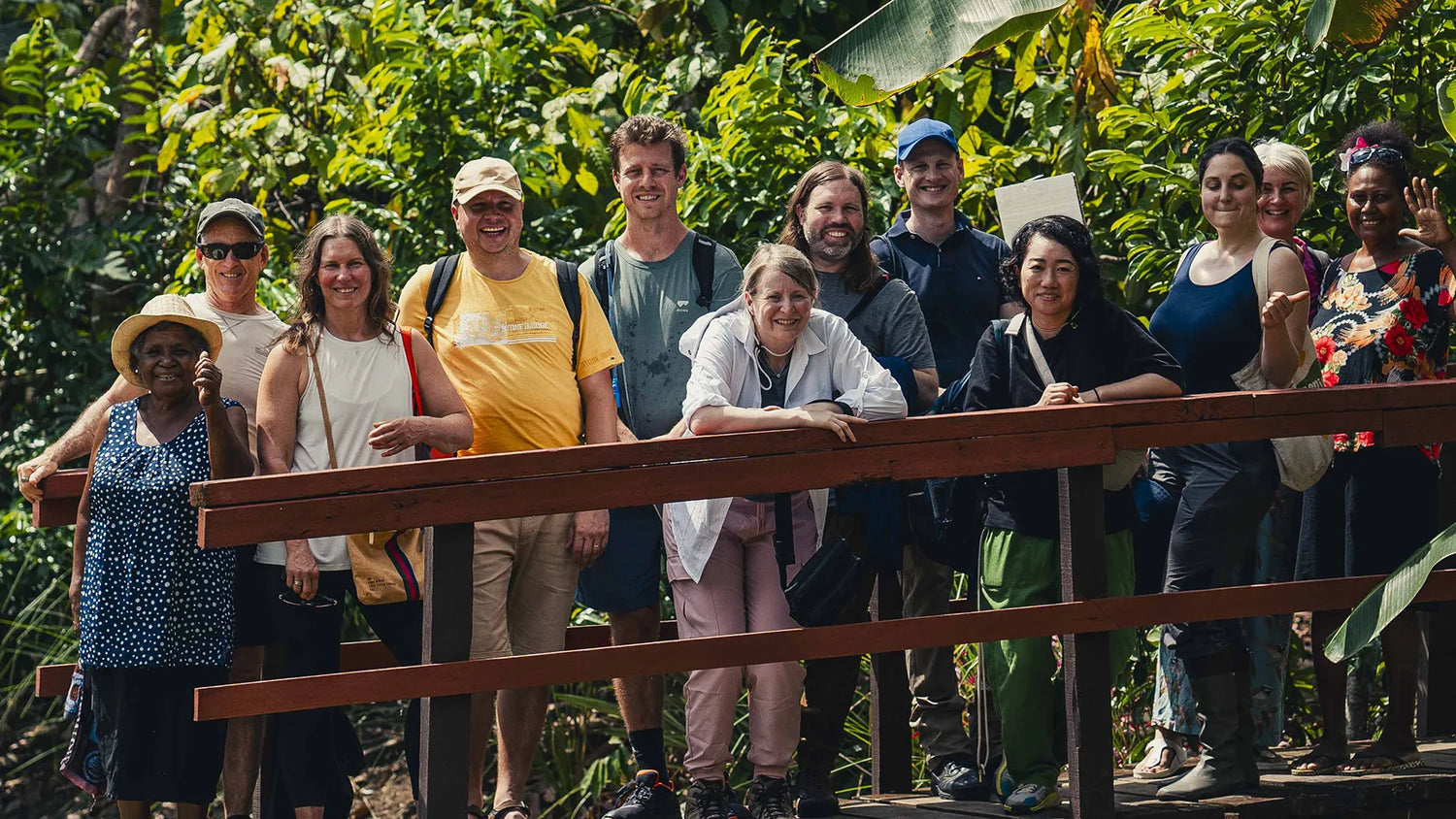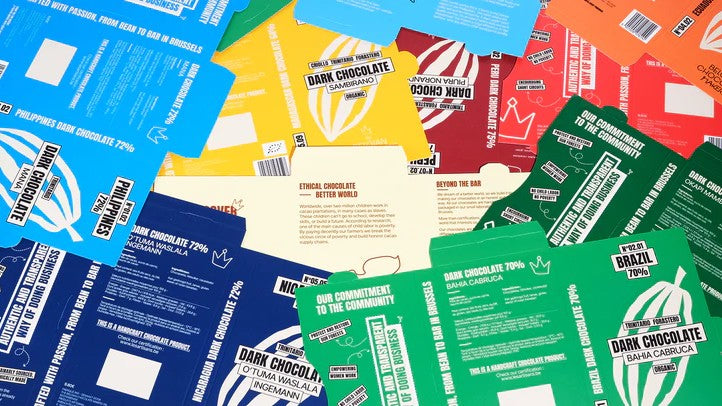We make all our chocolates from the beans. No industrial cacao ever used.
Our small factory and workshops are located in central Brussels.
We are a certified handcraft chocolate maker by Belgian government.
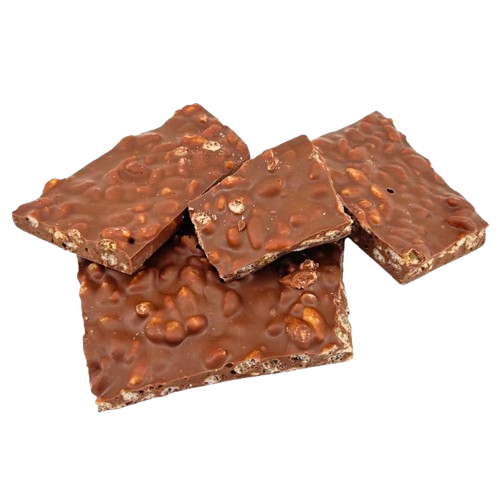
Milk chocolate broken bars with puffed rice
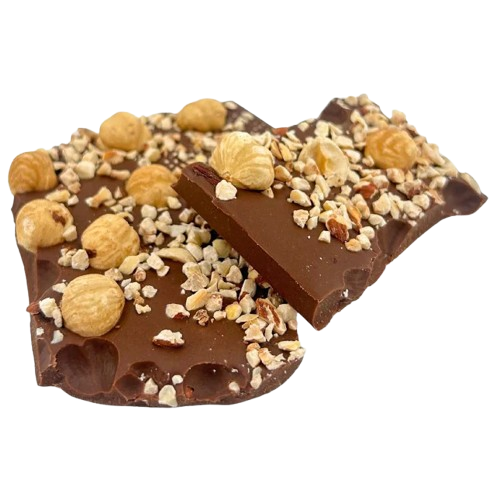
Milk chocolate broken bars with hazelnuts
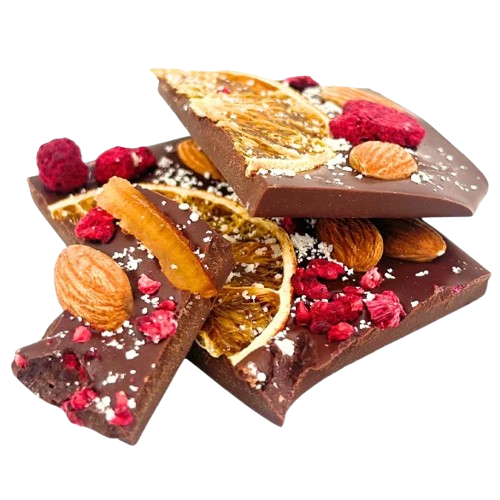
Dark chocolate broken bars with raspberry, almond and orange
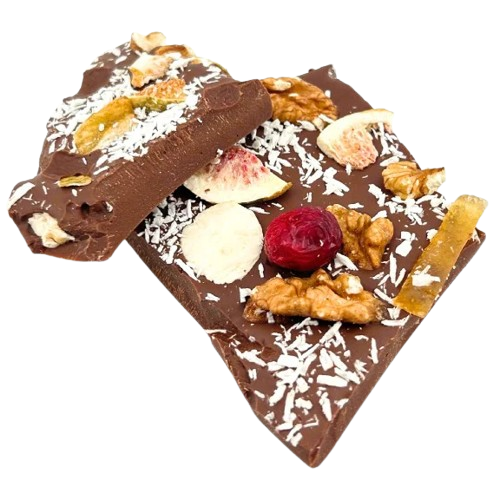
Milk chocolate broken bars with fig, lemon, cranberry, walnut, coconut
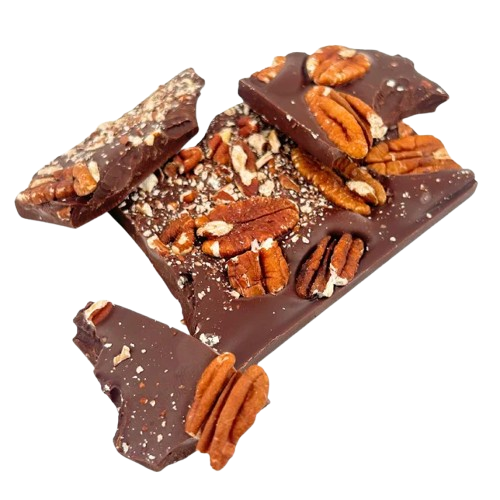
Dark chocolate broken bars with pecan
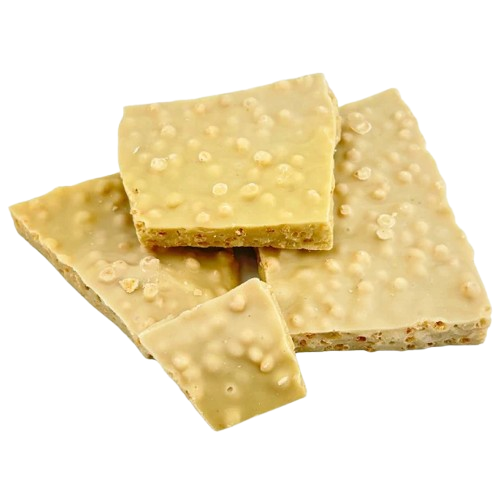
White chocolate broken bars with puffed rice
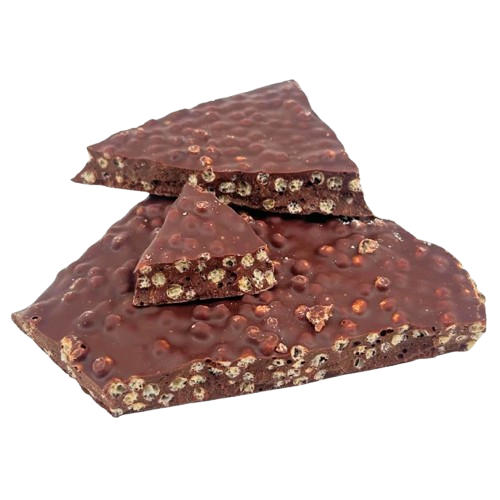
Dark chocolate broken bars with puffed rice
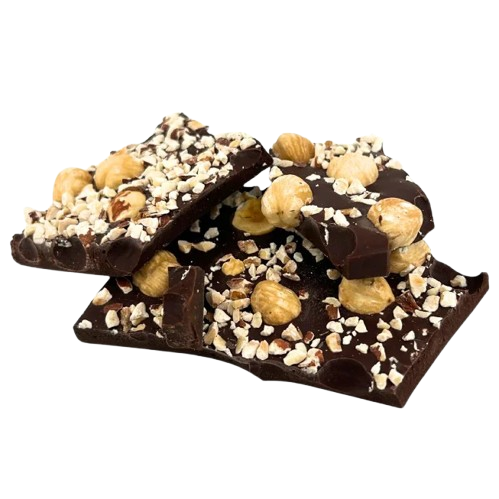
Dark chocolate broken bars with hazelnut
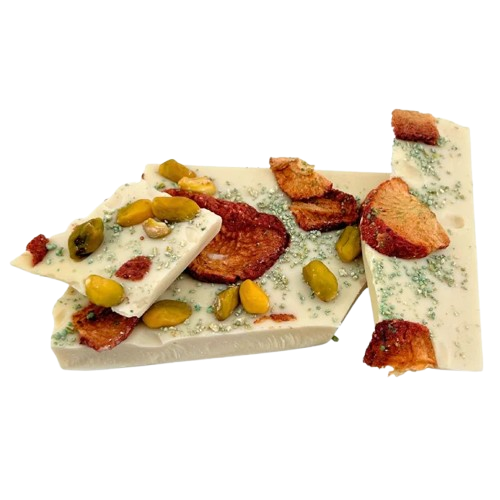
White chocolate broken bars with strawberries and pistachios

Milk chocolate broken bars with coconut, strawberry, cacao nibs
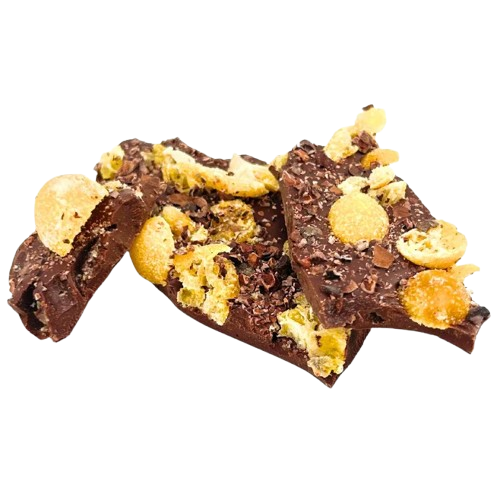
Dark chocolate broken bars with kumquat and cacao nibs
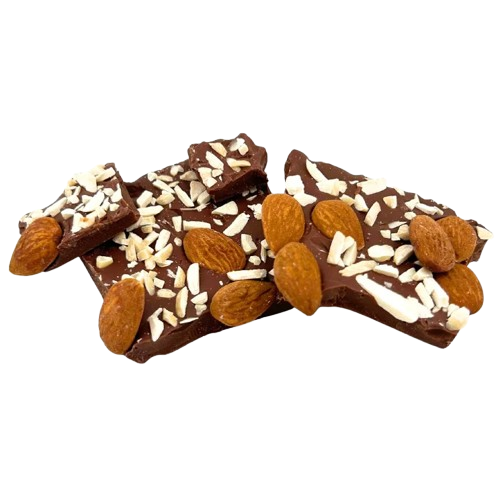
Milk chocolate broken bars with almond
Together we share and cooperate, but above all, ensure that value is returned to producers.
Proud member of
Les Chocolatiers Engagés
Going beyond the traditional functioning of fair trade, the approach of Chocolatiers Engagés aims to go even further. That is why the association brings together, for the first time, all links in the chain, from cocoa producers to consumers. This collaborative and transparent approach reinvents the model by establishing a direct dialogue between those who grow, process, and enjoy chocolate. A united cocoa industry, from bean to bar, with the goal of bringing about lasting change in the sector's practices.
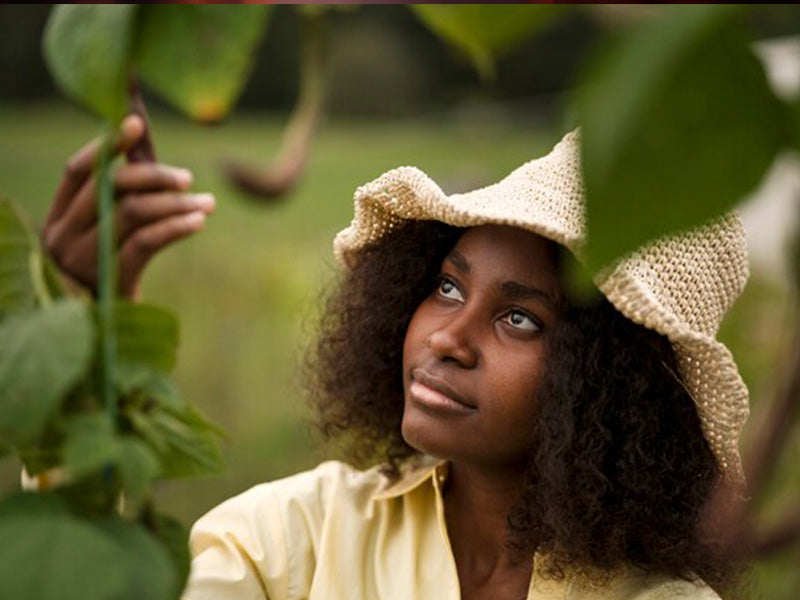
Short supply chains at the heart of the approach
The Chocolatiers Engagés association aims to minimize the number of intermediaries between cocoa producers and consumers.
The goal? To guarantee better pay for cocoa farmers and complete transparency throughout the supply chain, from bean to bar. To achieve this, we set a fixed minimum purchase price for cocoa beans, which is paid directly to producer groups.
This price is adjusted each year in line with changes in production costs in the country of origin and the economic climate.
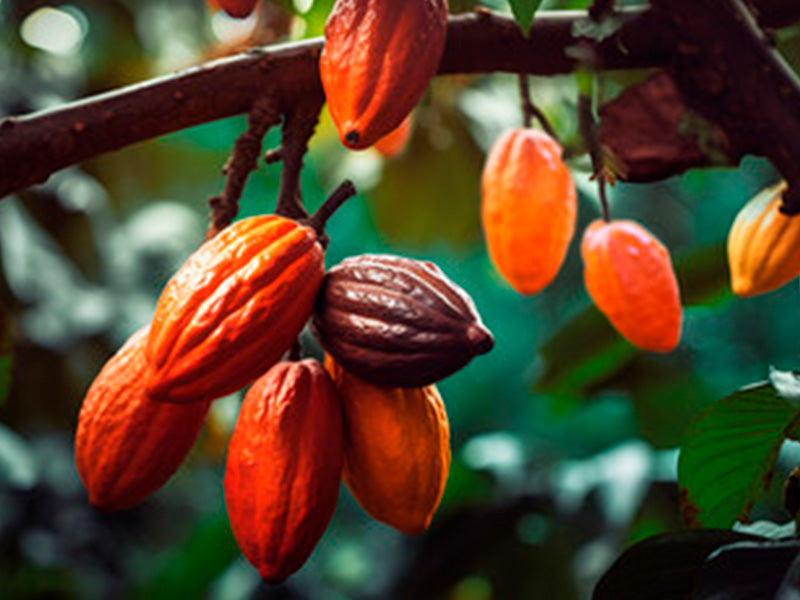
Exceptional cocoa
This is the product that has captured the attention of the Chocolatiers Engagés association. We want it to have superior organoleptic qualities so that it can be transformed into exceptional chocolate.
To achieve this, we support local producers in developing their fermentation and drying techniques, post-harvest treatments that are essential for revealing the delicate aromas of each cocoa bean.
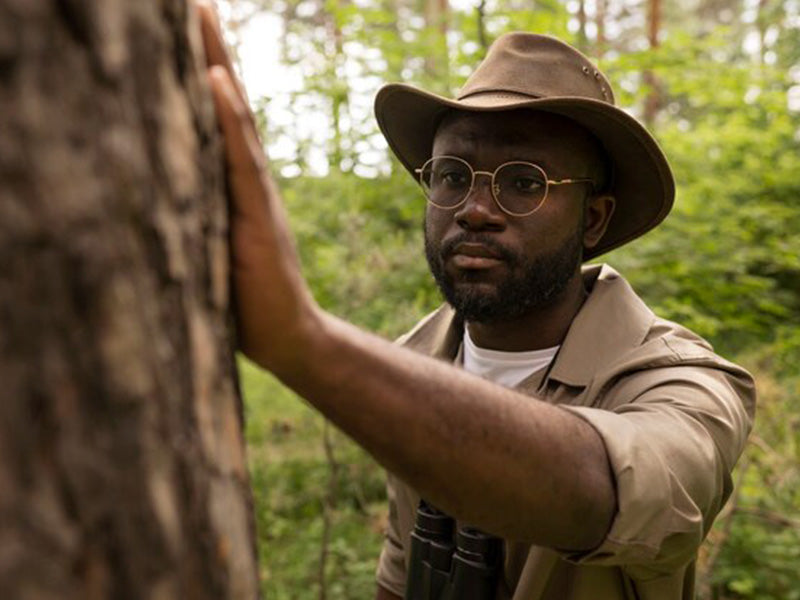
Respect for the men and women who produce cocoa
Beyond ensuring fair remuneration for cocoa producers, the Chocolatiers Engagés association also aims to support the development of local communities. To this end, we support several social initiatives such as employee savings schemes. These systems guarantee producers a cash injection at key times of the year, such as the start of the school year, and ensure favorable conditions for their children's education.
Furthermore, women play a strategic role in local communities and in cocoa production. This is why Chocolatiers Engagés wants to contribute to their empowerment by giving them decision-making power within producer groups.
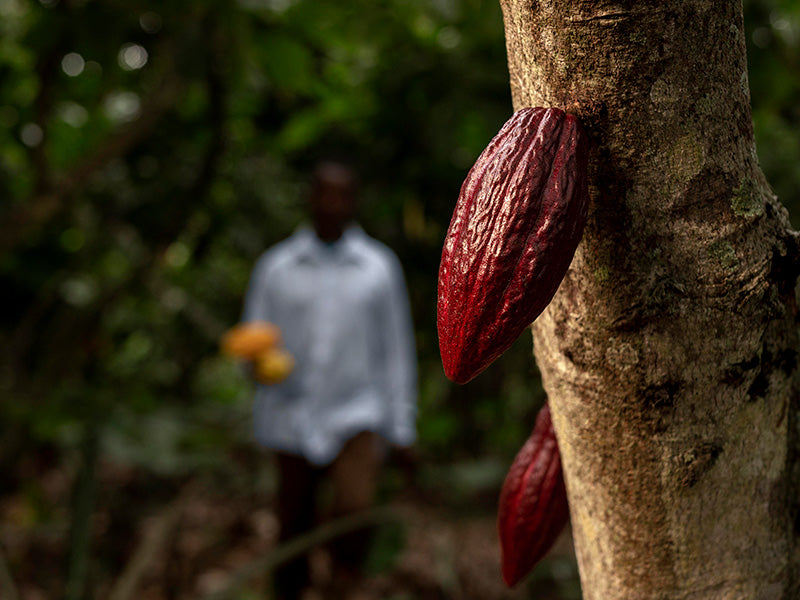
Environmental protection
Nature is a precious ally that producers and artisans must take care of. As an essential pillar for eco-responsible chocolate, the association raises awareness among cocoa farmers about more environmentally friendly agricultural practices.
To this end, Chocolatiers Engagés is focusing on the development of agroforestry, which involves mixing several types of trees and crops. This type of practice allows cocoa trees to grow in the shade of larger trees, while promoting the preservation of rich biodiversity, which is essential to the functioning of a healthy ecosystem.
essential
Our farmers
Our farmers undertake to comply with the post-harvest protocols established by the industry, which guarantee the aromatic richness of their cocoa.
They ensure complete transparency in the management of producer groups in order to maintain harmony and cooperation between partners.
They are committed to planting cocoa trees using agroforestry techniques and limiting the use of inputs in their crops to promote more environmentally friendly agriculture.
On a social level, we prohibits child labor and require our farmers to commit to sending their children to school.
commitments
Our importers
Our importers undertake to pay for the beans at the price agreed in advance with the producers (price revised annually, after consultation with partner producer groups, according to changes in the price of cocoa, the economic situation of the country, and the farmers).
Buyers undertake to participate in the pre-financing of harvests in order to compensate for the producers' lack of cash flow and enable them to start production.
Don't miss out on any updates !
A committed chocolate maker from bean to bar.
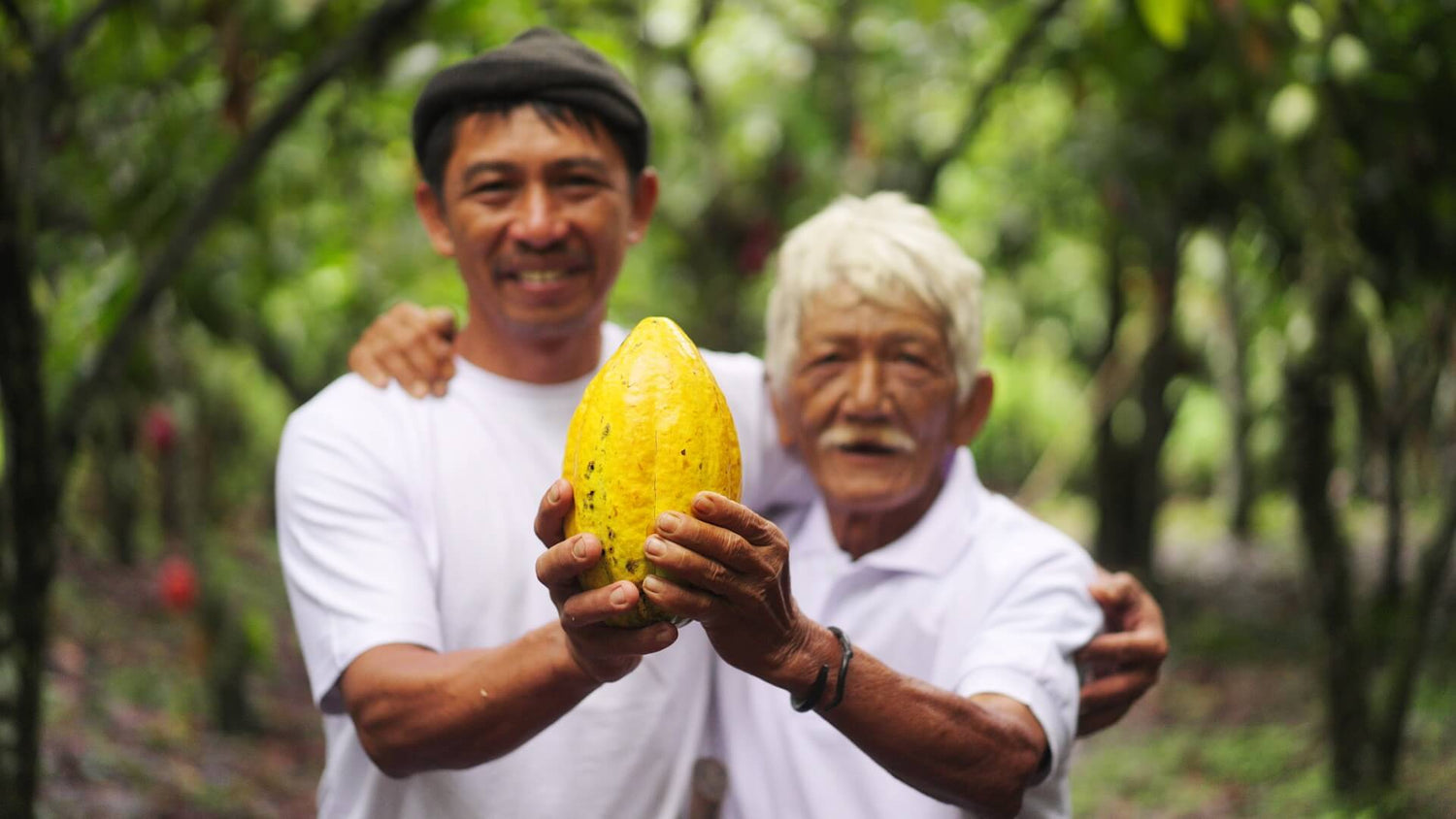
Stricter EU controls spark auditor shake-ups and slowdowns
Explore how stricter EU organic controls are reshaping cacao certification, causing auditor shortages, testing delays, and new hurdles for producers.
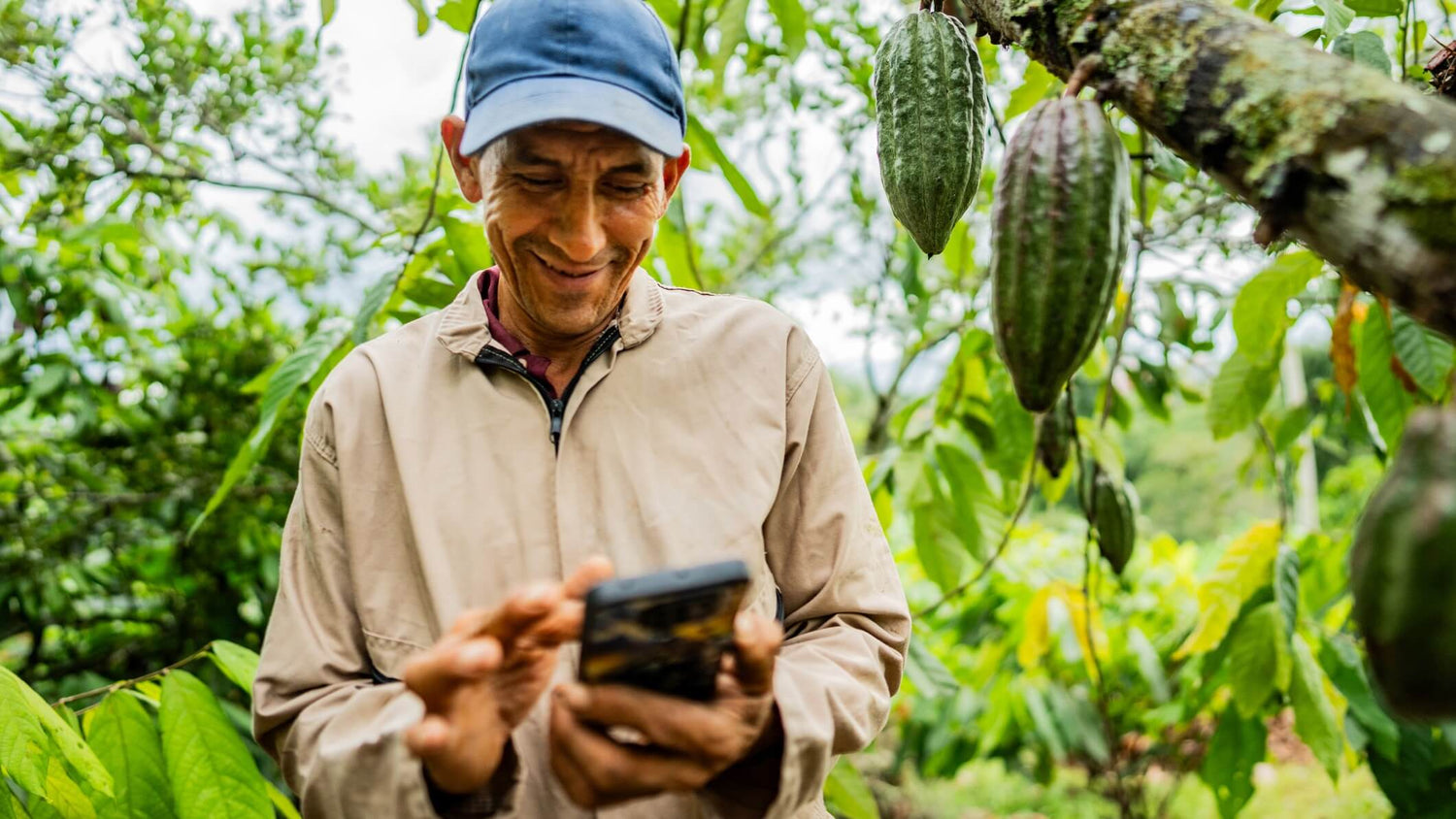
From farm to chocolate bar: how new EU organic rules are reshaping cacao
Explore how the EU’s new organic rules reshape cacao from farm to chocolate bar, impacting farmers, cooperatives, and specialty chocolate makers.
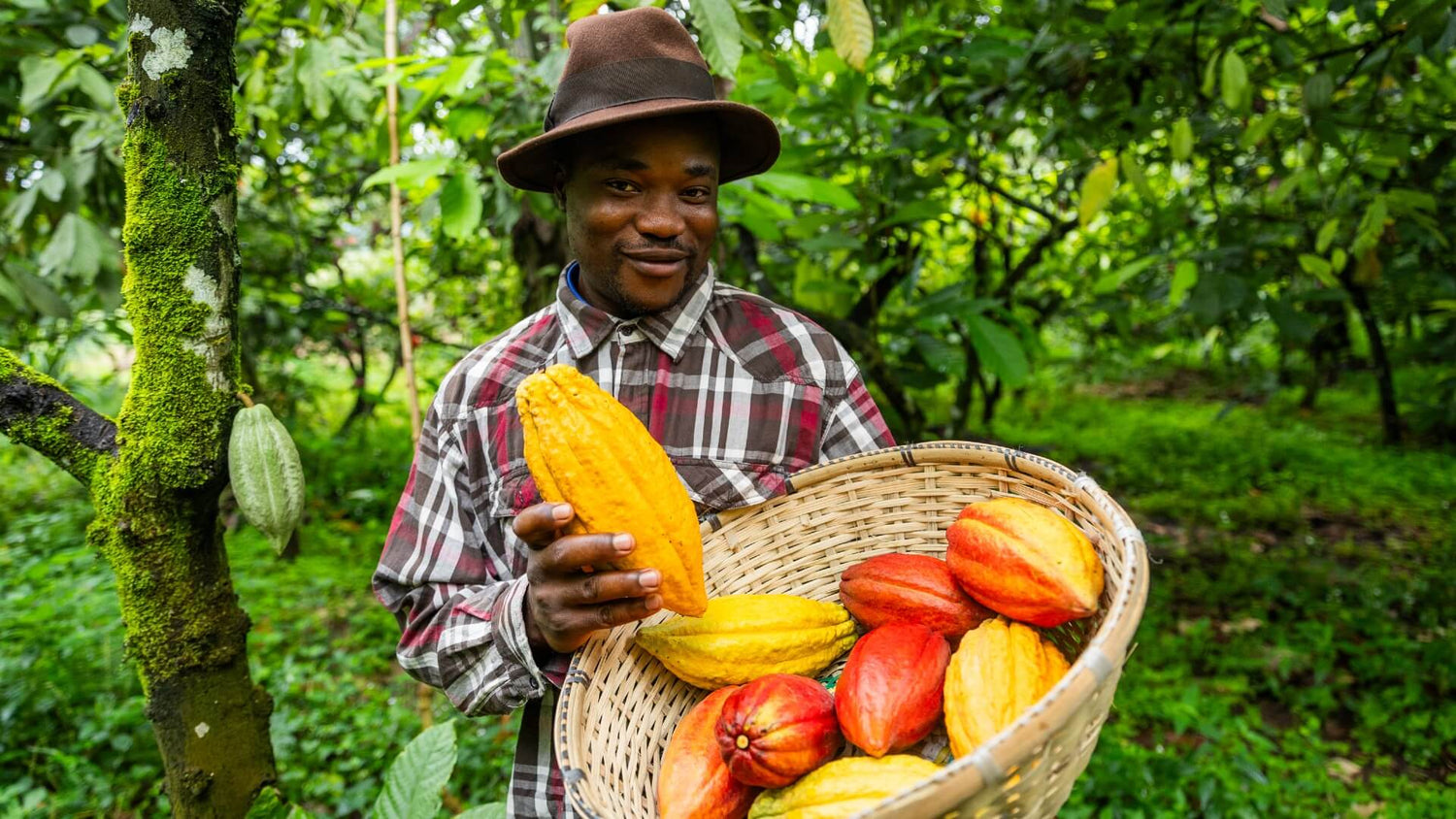
To organic or not to organic
Discover how new EU regulations set for 2025 are reshaping organic cacao production, from smallholder farms to premium chocolate markets.
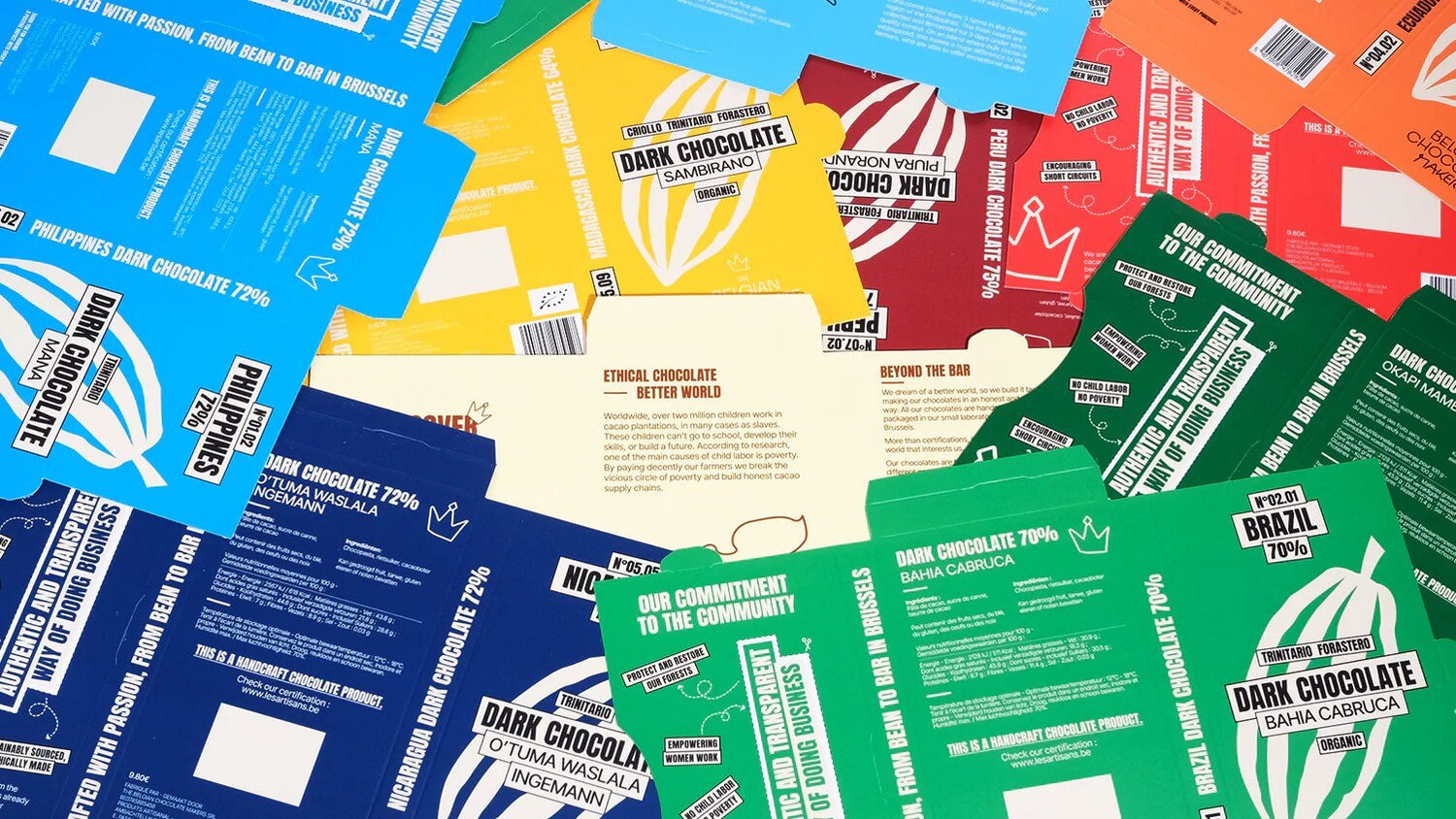
Our cacao got a true identity
From farm to bar, discover cacao with a true identity, ethically sourced, fully traceable, and crafted into Belgian chocolate that honors farmers, forests, and flavor.
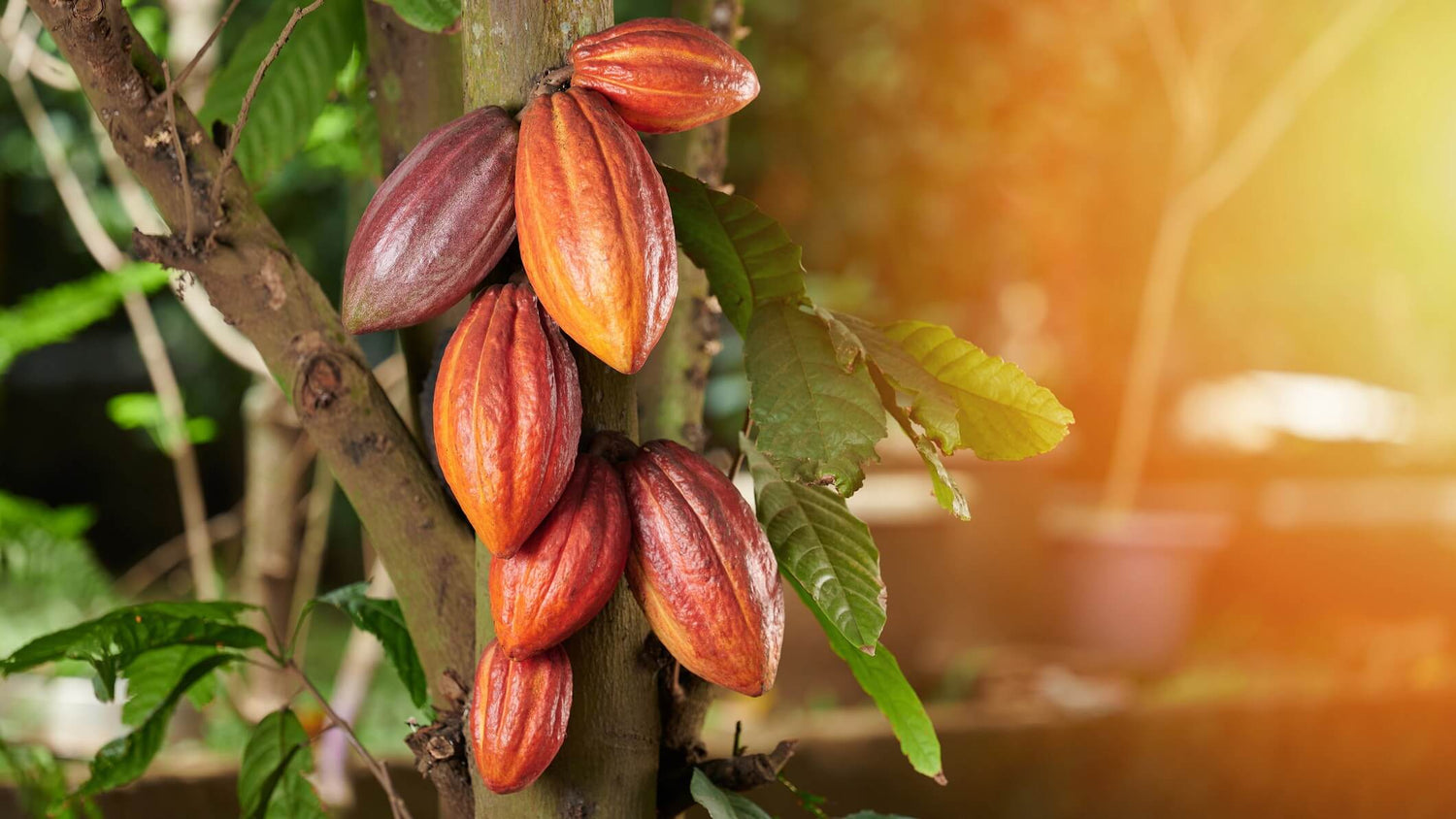
Great chocolate is never made alone
This spirit of solidarity does not stop at origin. In Europe, artisan chocolate makers like us echo these same values, recognizing that collaboration is the key to opening markets, protecting integrity, elevating quality, and driving lasting, positive change.
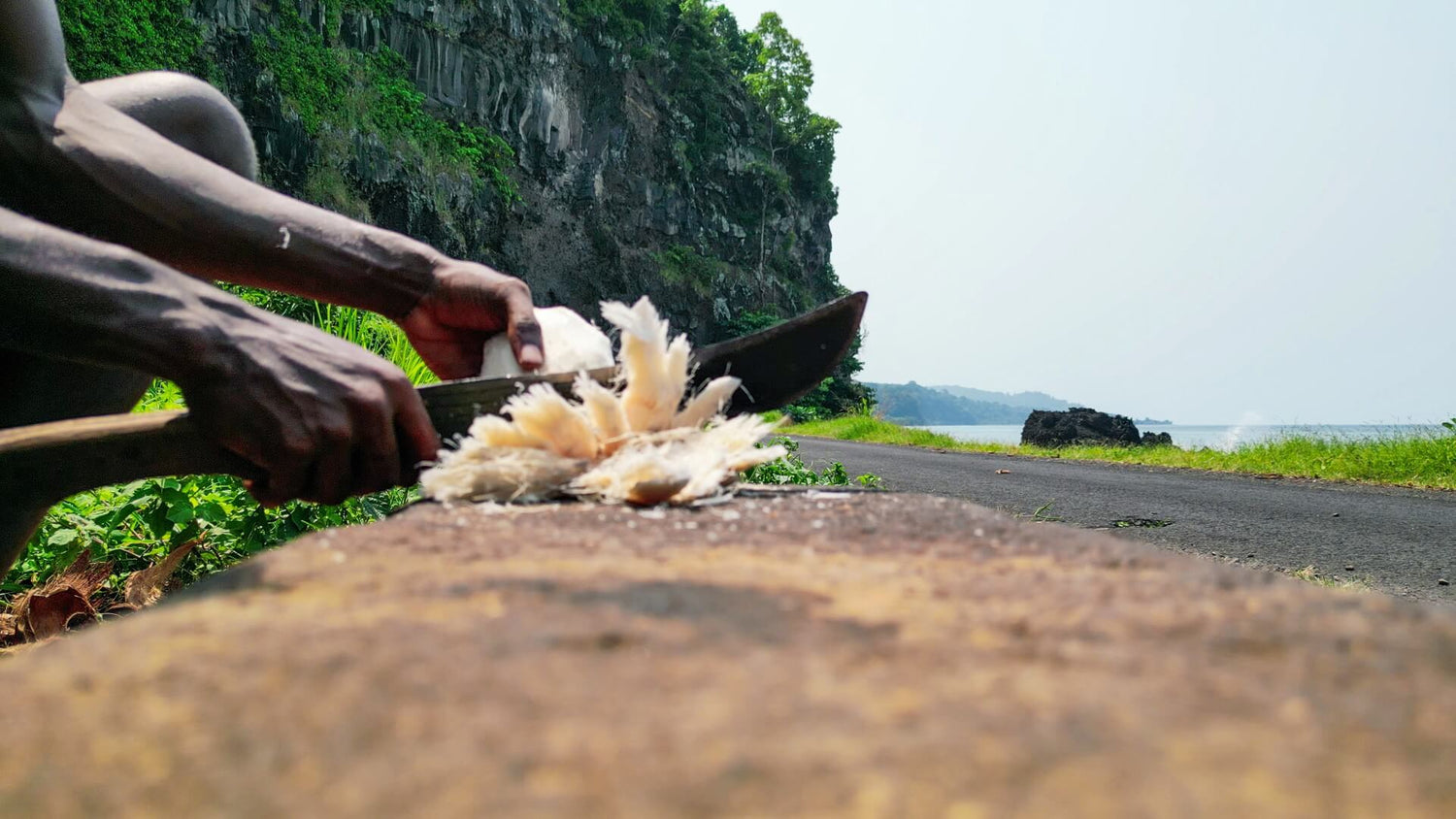
São Tomé: the chocolate island awakens
Discover São Tomé, the Chocolate Island. From volcanic soils to farmer cooperatives, explore its untapped cacao potential and revival in the premium market.
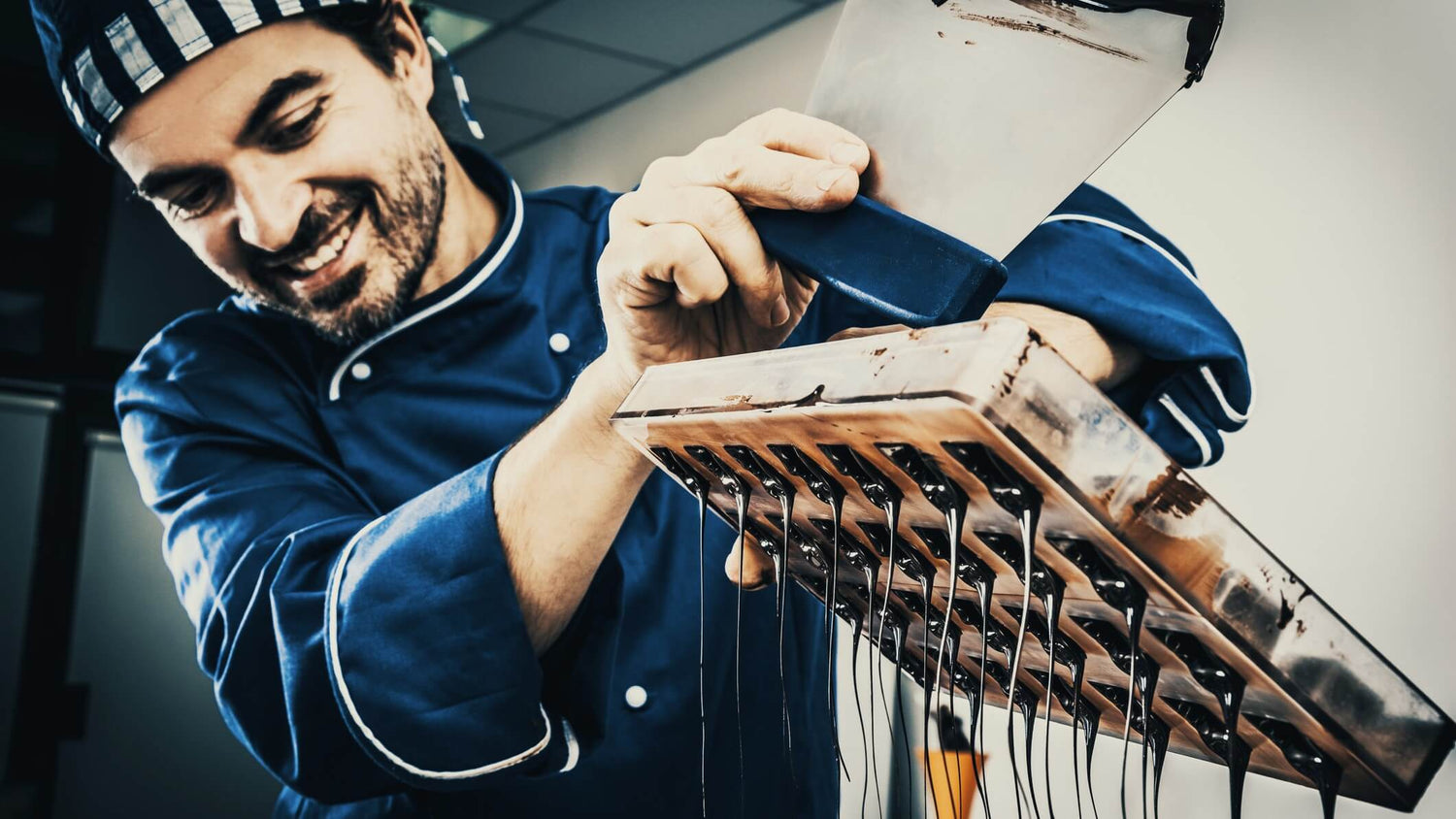
Chocolate bloom
Ever noticed a white or gray film on chocolate? That’s bloom! Learn the difference between fat bloom and sugar bloom, why they happen, and how to keep your Belgian chocolate flawless.
The origins towards a better chocolate world
More than 25 plantations !
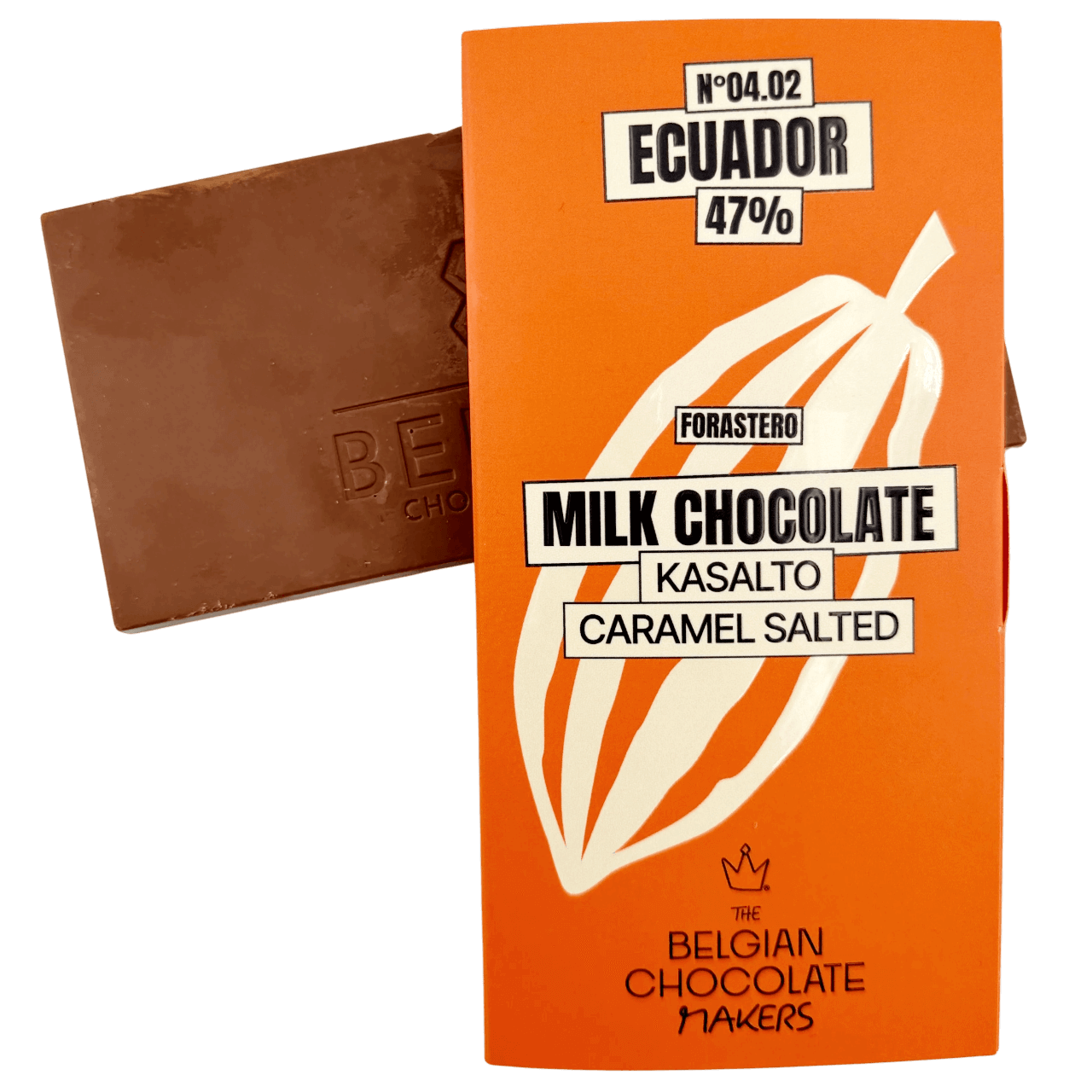
Chocolate bar Kasalto origin Ecuador 47% salted caramel
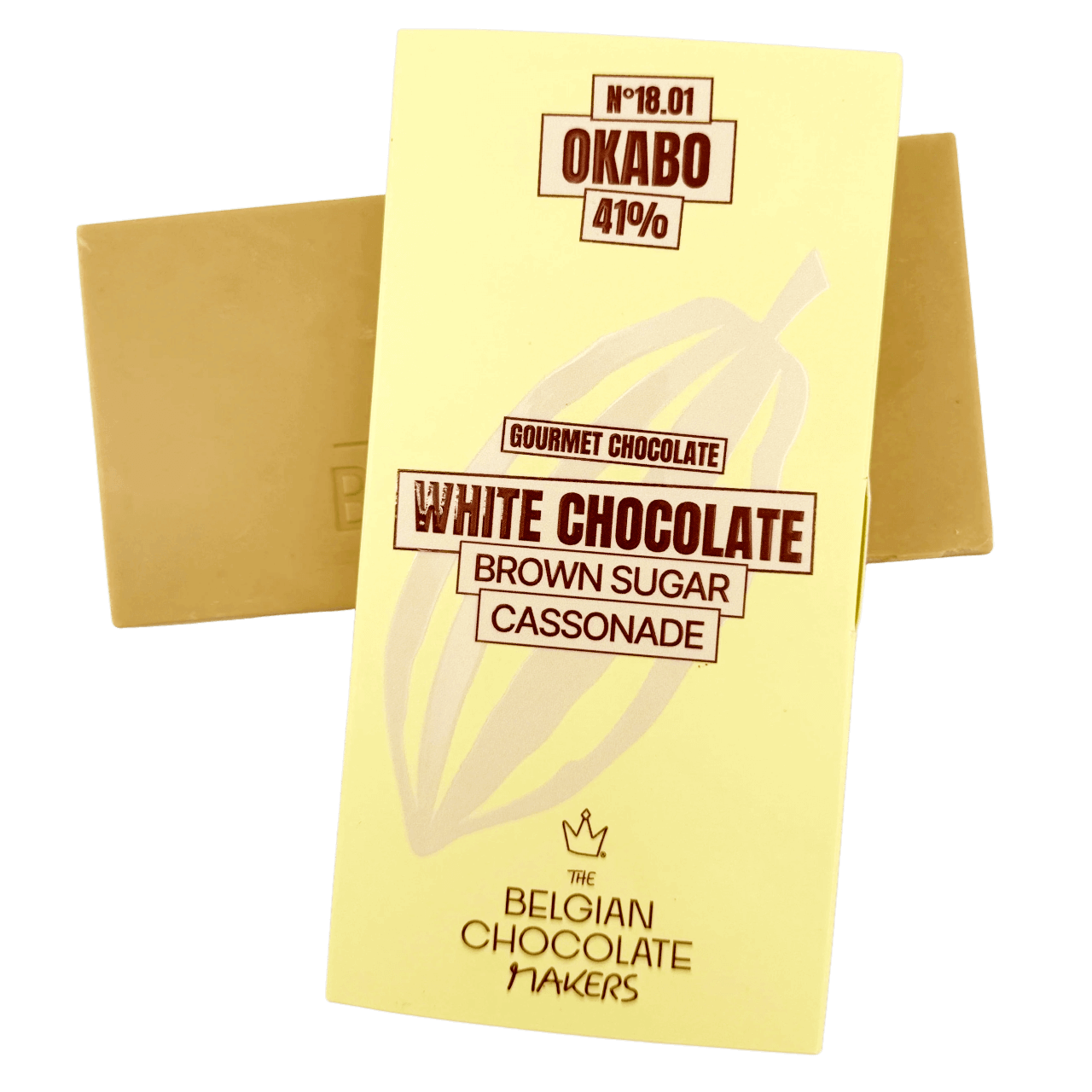
White chocolate bar brown sugar cassonade 41%
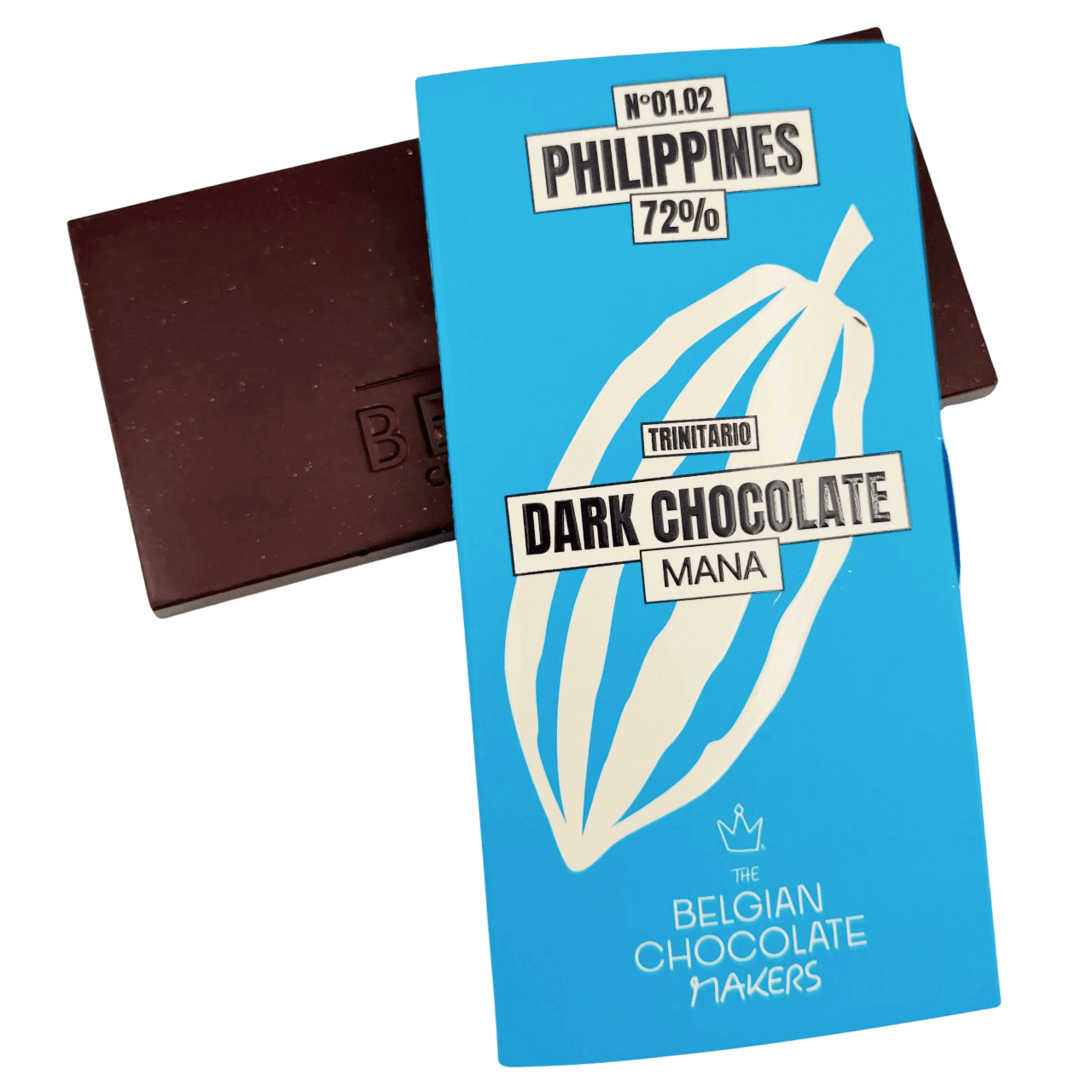
Chocolate bar origin Philippines Mana 72%
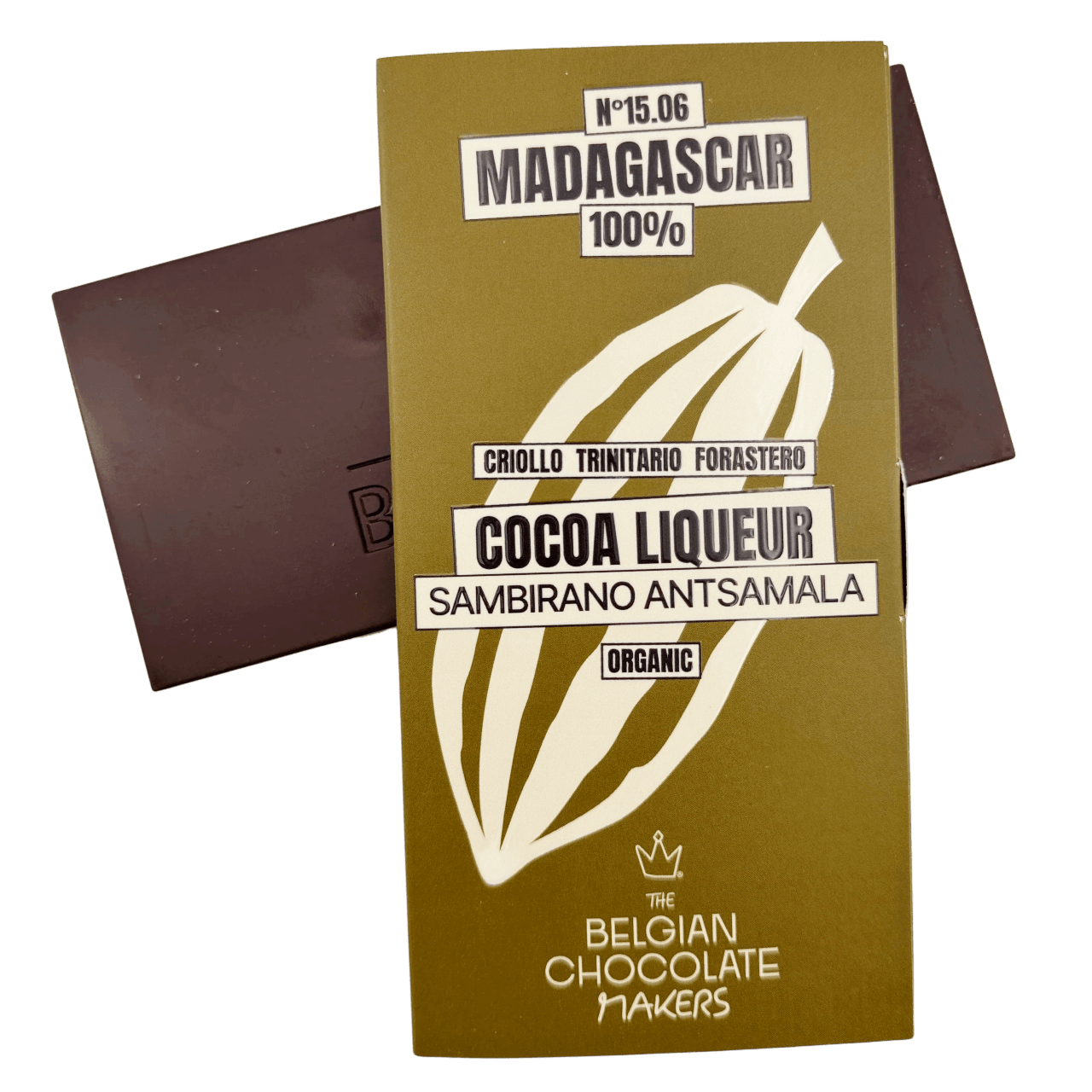
Liqueur bar origin Madagascar 100%
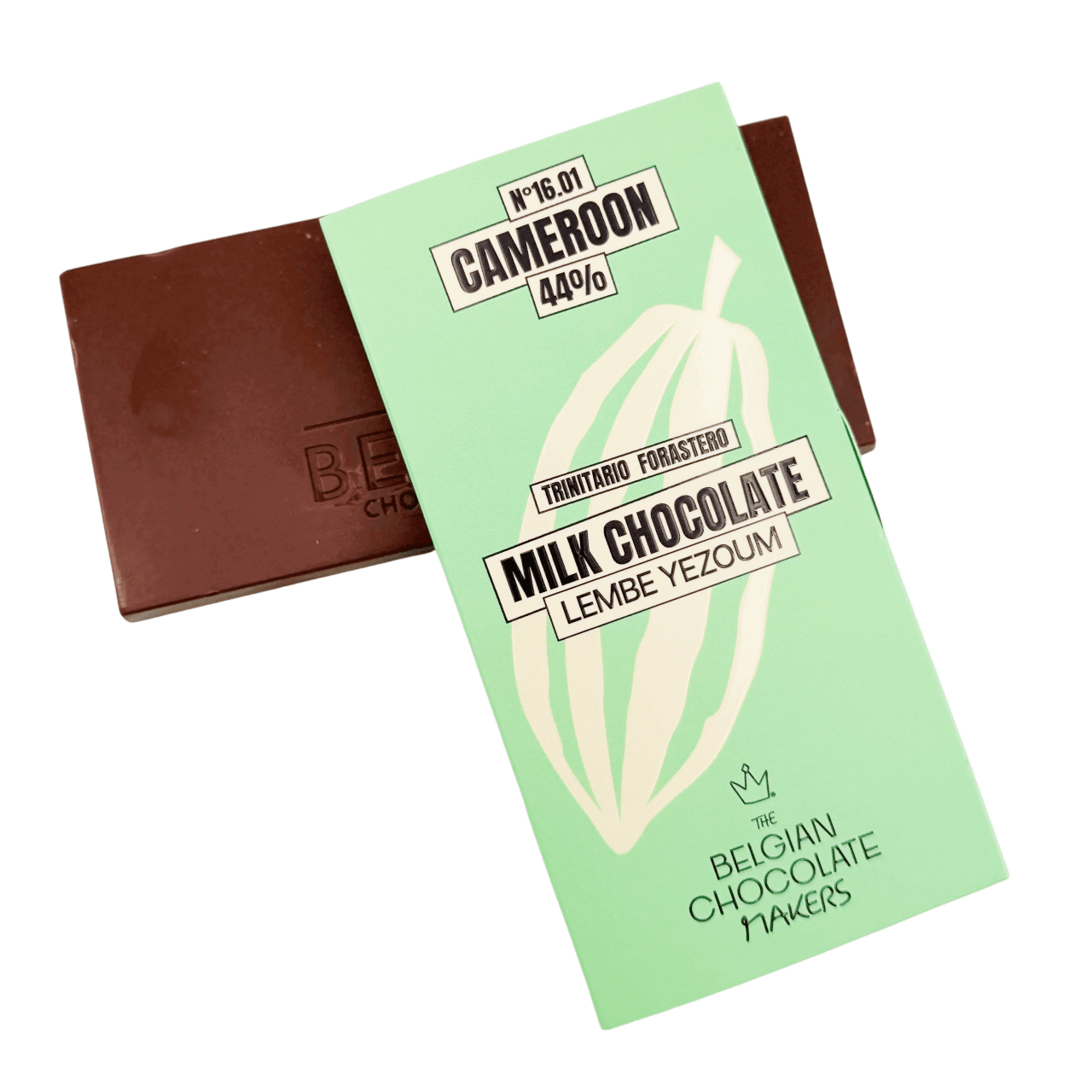
Chocolate bar origin Cameroon Lembé Yézoum 44%

White chocolate bar vanilla Bourbon 35%
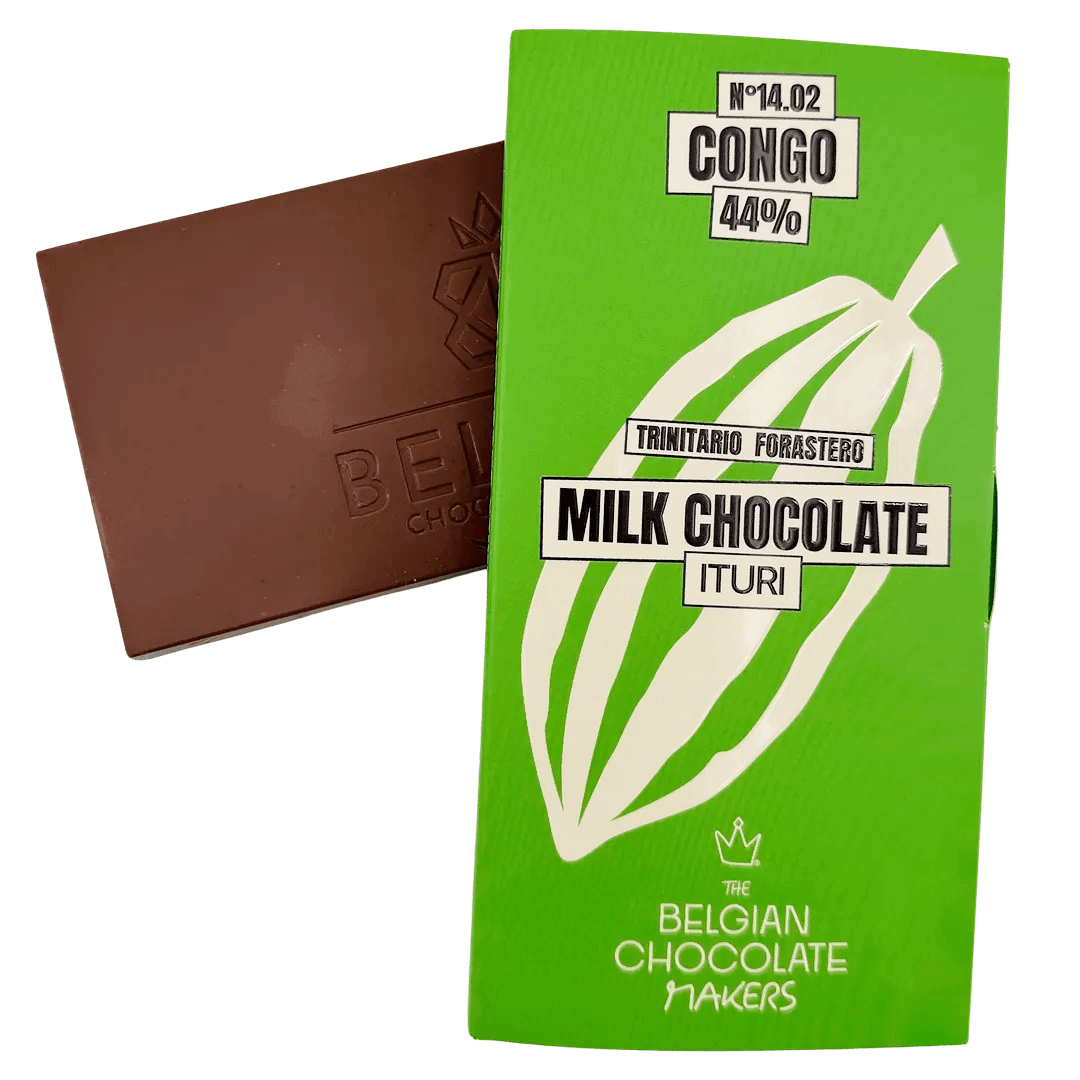
Chocolate bar origin Congo Ituri 44%
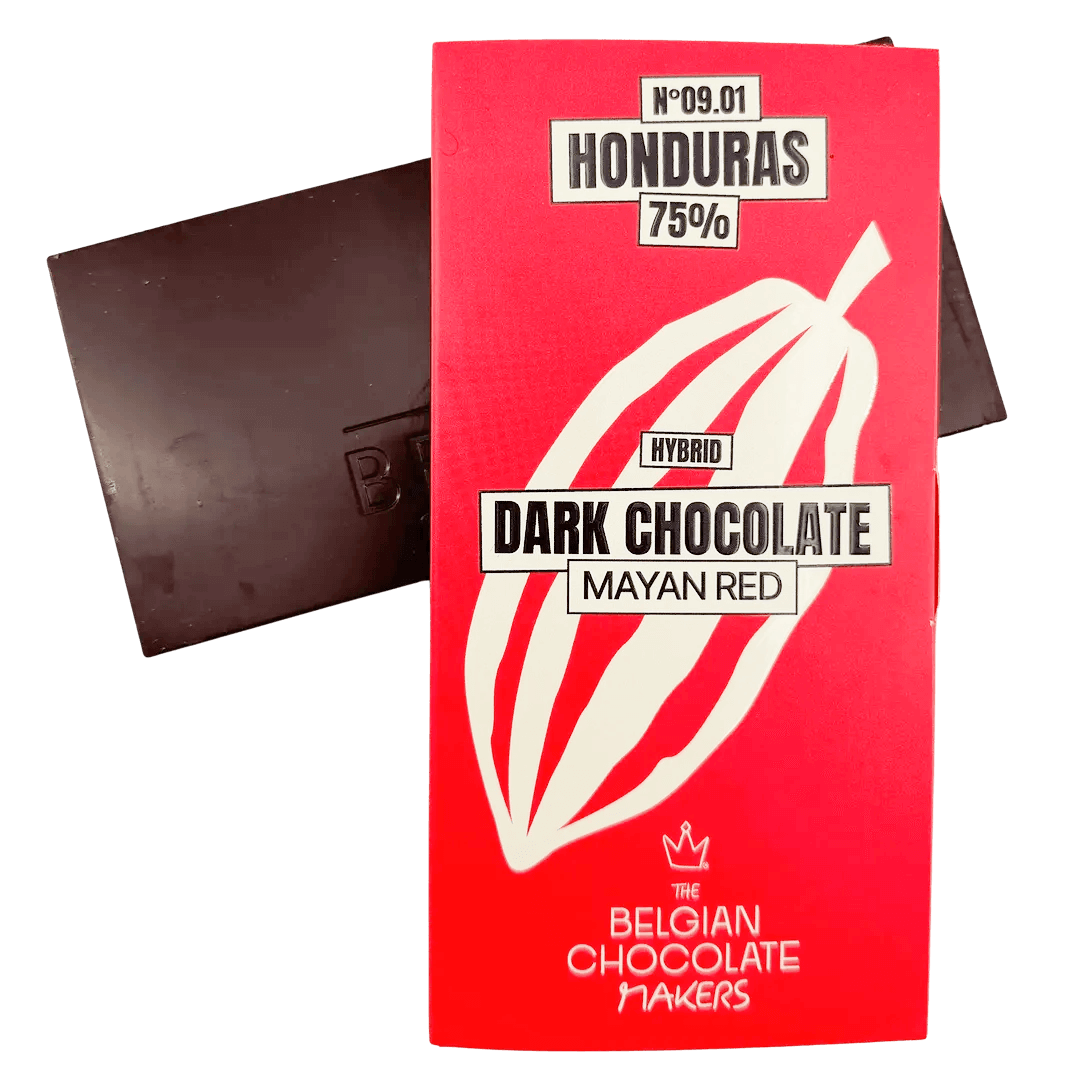
Chocolate bar origin Honduras Mayan Red 75%
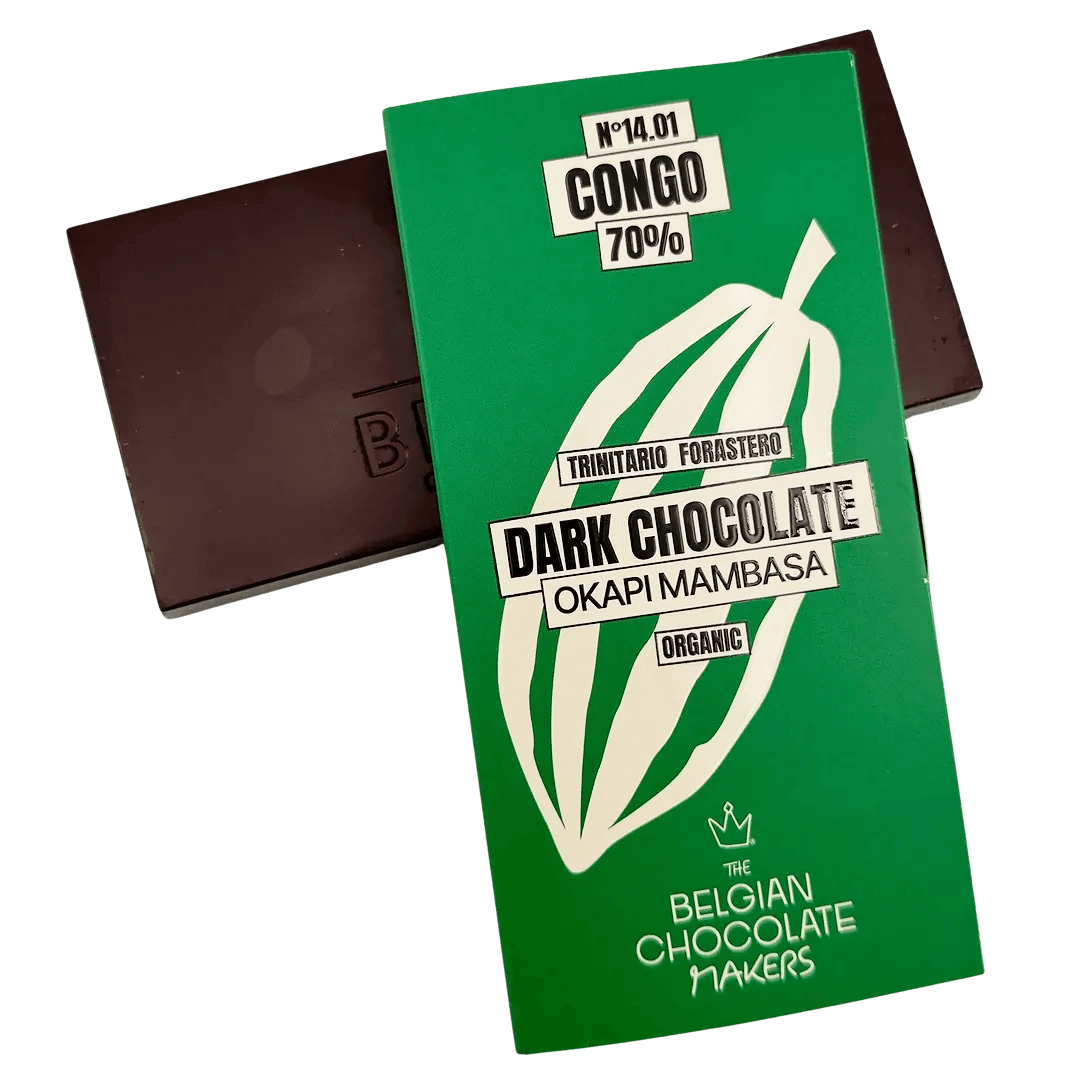
Chocolate bar origin Congo Okapi Mambasa 70%
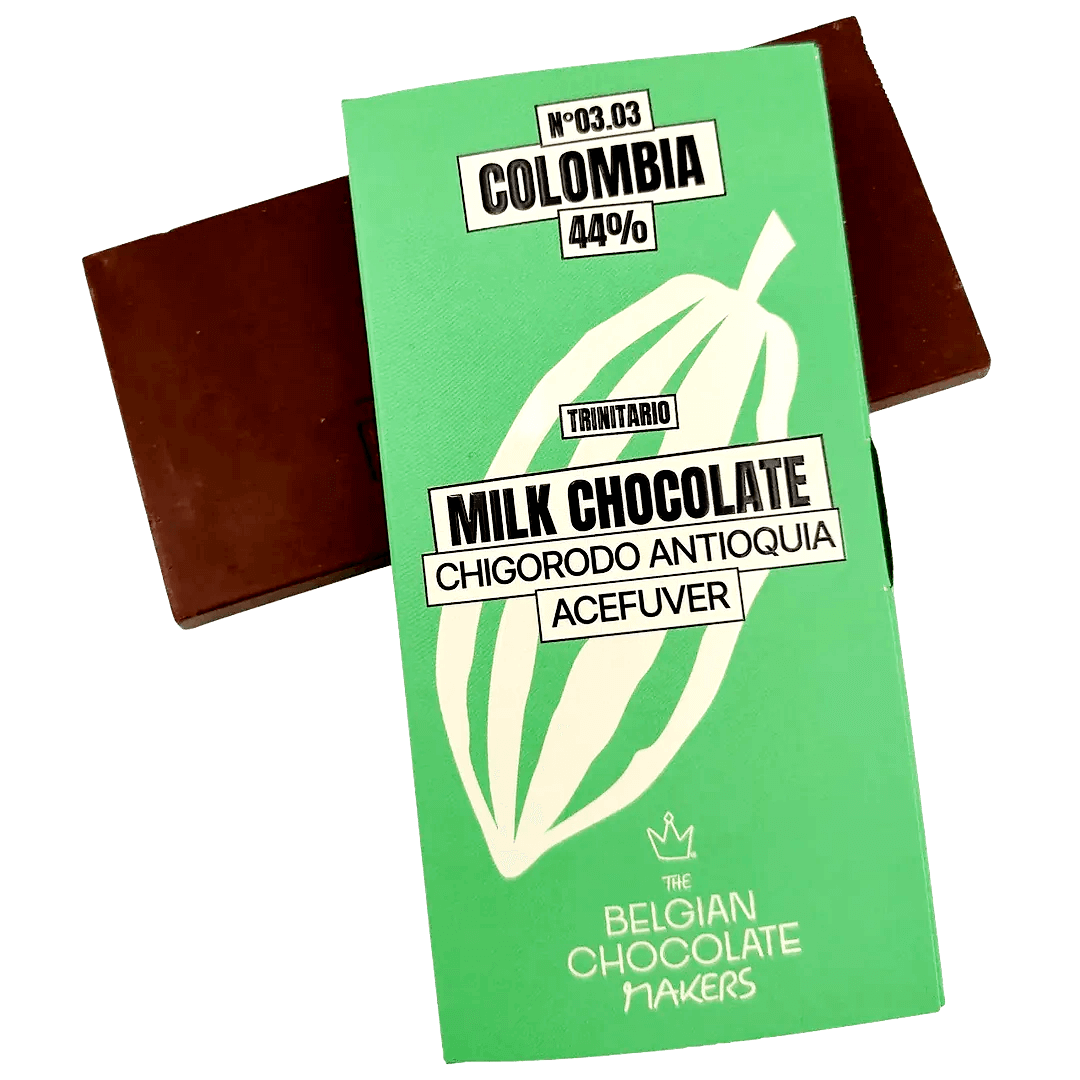
Chocolate bar origin Colombia Chigorodo Antiquia Acefuver 44%
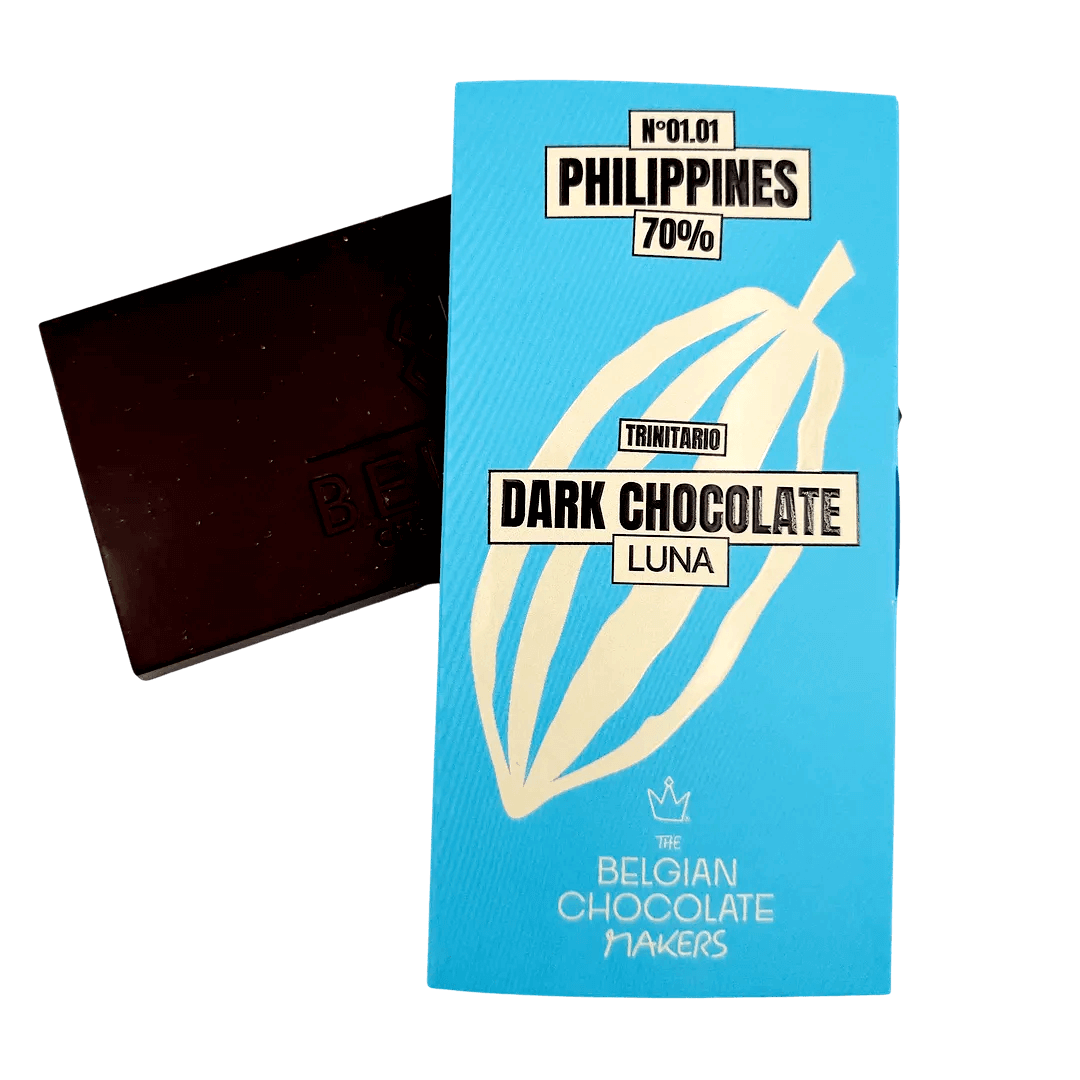
Chocolate bar origin Philippines Luna 70%
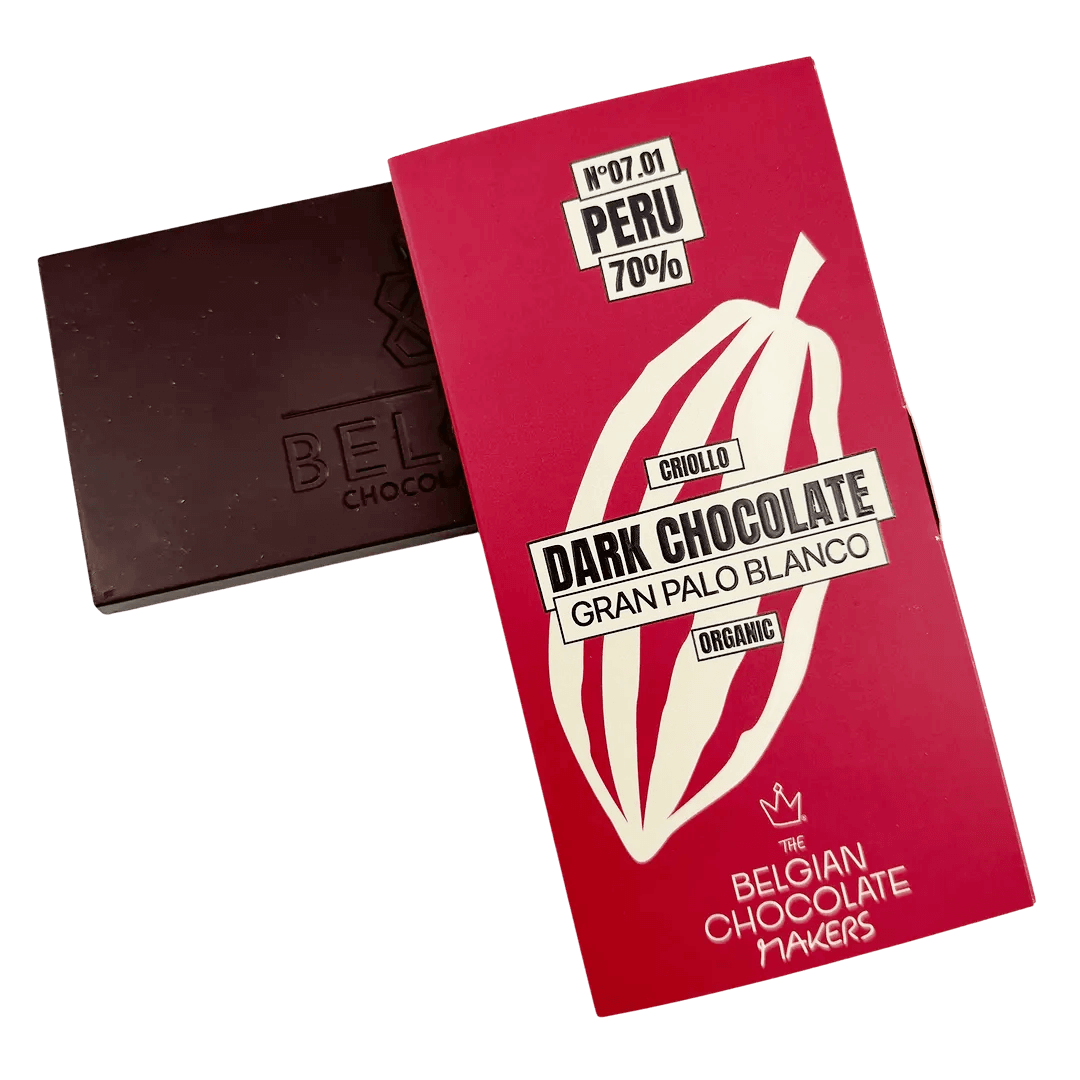
Chocolate bar origin Peru Gran Palo Blanco 70%
Climate change, low producer wages, quality denigrated on the international market... The cocoa industry faces many challenges. Whether on a human or environmental level, it is the entire ecosystem of cocoa cultivation that suffers from these imbalances.
That is why we are committed to producing excellent chocolate and sourcing ethical cocoa, harvested in conditions that are respectful of the environment, but also respectful of the men and women who work in the cacao industry.
